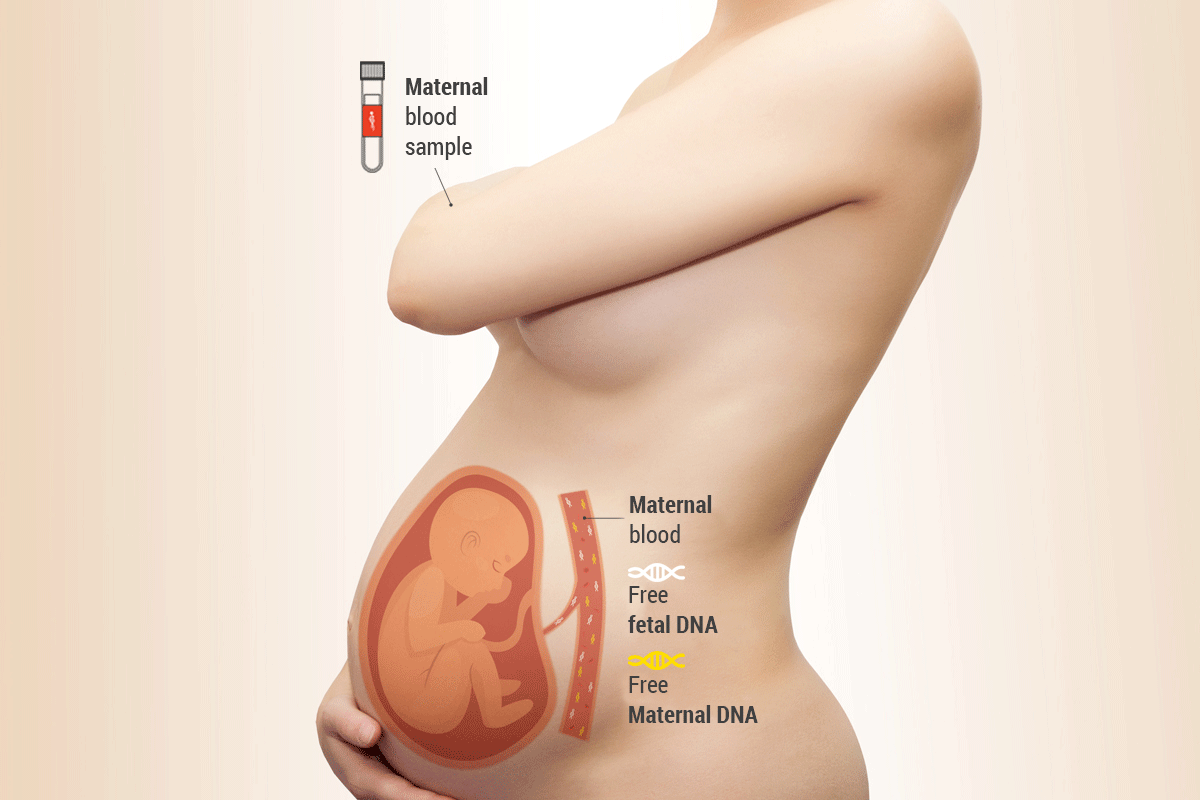The technology underlying the analysis carried out by FetalDNA is recognized by the scientific community as the most advanced in the world, overcoming the limits of tests already on the market.
ADVANCED TECHNOLOGY FOR FETAL DNA ANALYSIS
DISCOVER NIPT TECHNOLOGY
The Altamedica team performs the prenatal test through specific laboratory procedures:
Reception of blood samples
Isolation of free circulating fetal DNA from the maternal component
Multiple DNA analysis using latest generation massive sequencing, combining platforms for NGS (Next Generation Sequencing) and Digital PCR (Polymerase Chain Reaction)
Bioinformatics Analysis (Release 2021)
Analytical result
AN IMPORTANT TEST FOR A SERENE PREGNANCY
FetalDNA is a non-invasive test that poses absolutely no risk for the mother nor the fetus. It is currently the most comprehensive screening test for the study of chromosomal aneuploidies affecting the fetus.
During pregnancy, some fragments of fetal DNA circulate in the maternal blood with a concentration that increases over 9 months, then decreases after delivery. An optimal level for proceeding with the execution of FetalDNA is obtained already after 10 weeks of gestation. At this time, from our clinical validation studies, it is possible to obtain a very high specificity and sensitivity of the examination.
From the 10th week, therefore, it is possible to undergo a simple maternal blood sample, to investigate the presence of any genetic anomalies.

QUICK, CLEAR AND RELIABLE RESULTS
Thanks to our cutting-edge technology, we are able to guarantee response times within 5 working days for all types of examinations (8 working days in the case of the FetalDNA Total Screen).
In preclinical validation studies, the examination showed a reliability of 99.9% in detecting trisomy 21, trisomy 18 and trisomy 13, and of 95% in detecting monosomy X, with rates of false positives < 0.1%.
In particular, FetalDNA Karyotype shows more than 99% of the fetal chromosomal aneuploidies found at birth, reaching a level of detection rate comparable with amniocentesis and CVS.
FetalDNA Karyotype Plus is even more complete because it added to the study of the karyotype a very high number of small chromosomal rearrangements and the diagnosis of Maternal Cystic Fibrosis.
The maximum levels of sensitivity are obtained with the FetalDNA Total Screen, which reaches 100% for Hereditary Maternal Thrombophilia and for CMV / TOXO infections, 99.9% for the trisomies of chromosomes 21, 18, 13 and sex chromosomes, 99 % for monogenic diseases, maternal spinal muscular atrophy (SMA), and risk of preterm delivery.
NEGATIVE RESULT
Genetic anomaly not detected
The test did not detect any aneuploidy among examined chromosomes examined nor microdeletions. The reliability of the result is reported in the “Results” section of the report and in the “Test Accuracy” section of the technical report.
POSITIVE RESULT
Genetic anomaly detected
The test produced a result compatible with a fetal chromosomal aneuploidy or with a microdeletion. This result indicates that the fetus has one of the pathological conditions indicated but, as established by the ministerial rules, it must then be confirmed by an invasive diagnostic test.
The recommended follow-up is an invasive prenatal diagnosis test – amniocentesis or CVS – which will be carried out completely free of charge (sampling and analysis) at the Altamedica Healthcare Center.
Thanks to a dedicated genetic consultation, the patient will receive a detailed explanation of the examination results. Only after confirmation of the result through amniocentesis or CVS, it is possible to resort to the Italian Law 194/78 for voluntary termination of pregnancy.